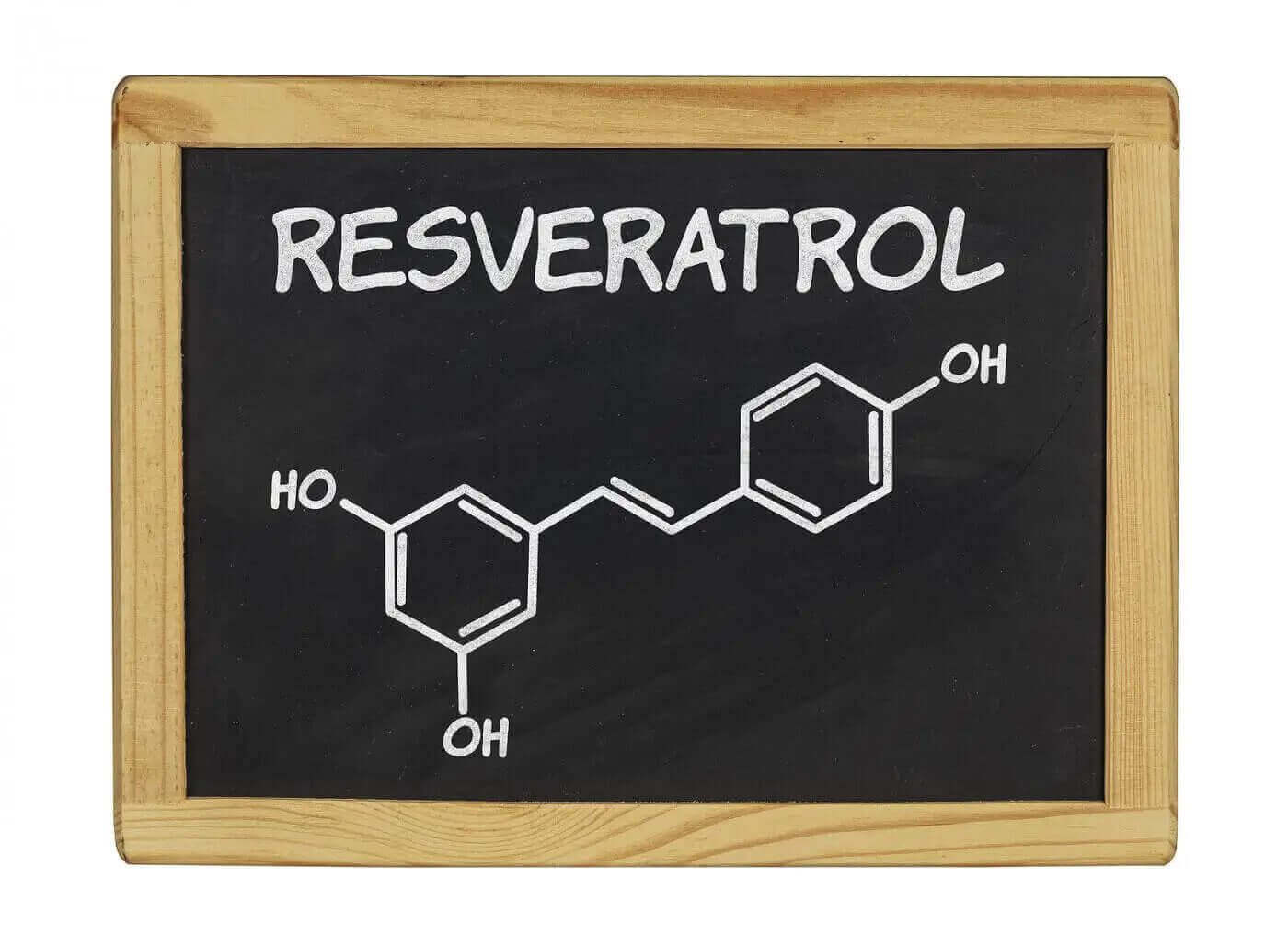Resveratrol Research: New York Academy of Sciences Breakthrough Findings on Health Benefits
Resveratrol has captured the attention of the scientific community as one of the most promising natural compounds for human health. The prestigious New York Academy of Sciences, established in 1823 as one of the world's oldest scientific institutions, recently dedicated an entire volume to resveratrol research. This comprehensive collection of studies reveals exciting possibilities for those seeking natural solutions to improve their health and longevity.
Why Resveratrol Changes Everything: A Scientific Revolution
The July publication of "Resveratrol and Health" (volume 1290) in the Annals of the New York Academy of Sciences marks a pivotal moment in natural health research. This dedication of an entire book to resveratrol demonstrates the compound's remarkable potential to transform how we approach wellness, disease prevention, and healthy aging. Scientists worldwide are discovering that this powerful polyphenol, found naturally in red wine, grapes, and certain berries, offers hope for addressing some of humanity's most challenging health concerns.
Top Strategies for Resveratrol Benefits: Three Groundbreaking Studies
1. Resveratrol as a Powerful Cancer Prevention Agent
The first groundbreaking article, "Resveratrol and cellular mechanisms of Cancer prevention," unveils the compound's potential as a natural defense against cancer. Researchers have discovered that resveratrol activates multiple cellular pathways that protect against cancer development and progression. This natural compound works like a sophisticated biological defense system, targeting cancer cells while protecting healthy tissue.
What makes this research particularly exciting is that resveratrol doesn't just work through one mechanism. Instead, it orchestrates a complex symphony of protective actions:
- Cell cycle regulation: Resveratrol helps prevent damaged cells from multiplying uncontrollably
- Apoptosis induction: It encourages cancer cells to self-destruct naturally
- Anti-inflammatory effects: The compound reduces chronic inflammation linked to cancer development
- Antioxidant protection: Resveratrol neutralizes harmful free radicals that damage DNA
Multiple clinical trials are now underway, testing resveratrol's effectiveness against various types of cancer. These studies offer hope to millions seeking natural, preventive approaches to maintain their health and reduce cancer risk.
2. Resveratrol for Heart Health: Understanding the French Paradox
The second article, "Resveratrol: a cardioprotective substance," explores one of nutrition science's most intriguing mysteries. People in Mediterranean regions often consume diets high in saturated fats, yet they experience surprisingly low rates of coronary heart disease (CHD). This phenomenon, known as the "French Paradox," has puzzled researchers for decades.
The answer lies in their regular consumption of red wine, rich in resveratrol. This natural compound provides remarkable cardiovascular protection through several mechanisms:
- Improving blood vessel function: Resveratrol helps blood vessels relax and expand, improving circulation
- Reducing inflammation: It calms inflammatory processes that contribute to heart disease
- Preventing blood clots: The compound helps maintain healthy blood flow
- Protecting against oxidative stress: Resveratrol shields heart tissue from damage
- Improving cholesterol profiles: It helps balance good and bad cholesterol levels
Laboratory and animal studies consistently demonstrate that resveratrol delivers the heart-protective benefits of red wine without the alcohol. This discovery opens exciting possibilities for those who want cardiovascular protection without consuming wine.
3. Resveratrol for Weight Management and Fat Reduction
The third selected article, "Effects of resveratrol on fat mobilization," reveals another remarkable benefit of this versatile compound. As obesity rates continue to rise globally, finding natural solutions for healthy weight management becomes increasingly important. Resveratrol offers a multi-faceted approach to addressing excess body fat.
Research shows that resveratrol works through three primary mechanisms to support healthy weight:
- Preventing fat cell formation: Resveratrol inhibits the creation of new adipose tissue
- Reducing fat cell size: It prevents existing fat cells from expanding
- Enhancing fat breakdown: The compound increases the degradation of fat molecules within cells
These findings suggest that resveratrol could become a valuable component of natural weight management strategies, offering hope to those struggling with weight-related health challenges.
Step-by-Step Guide to Resveratrol Benefits: How It Works in Your Body
Understanding how resveratrol works helps you appreciate its remarkable potential. Here's what happens when you consume this powerful compound:
Step 1: Absorption and Distribution
After consumption, resveratrol rapidly enters your bloodstream through the digestive system. Despite its relatively low bioavailability, even small amounts can produce significant biological effects. The compound travels throughout your body, reaching various organs and tissues where it begins its protective work.
Step 2: Cellular Activation
Once inside your cells, resveratrol activates specific proteins called sirtuins, particularly SIRT1. These proteins are often called "longevity genes" because they regulate cellular health, metabolism, and aging processes. This activation triggers a cascade of beneficial effects throughout your body.
Step 3: Gene Expression Modulation
Resveratrol influences how your genes express themselves, turning on protective pathways while suppressing harmful ones. This epigenetic effect means resveratrol can help your body function more like it did when you were younger, promoting cellular repair and regeneration.
Step 4: Systemic Protection
As resveratrol continues working in your system, it provides widespread protection against oxidative stress, inflammation, and cellular damage. This comprehensive defense helps maintain optimal health across multiple body systems.
Real-World Applications: Success Stories and Practical Uses
The research published by the New York Academy of Sciences translates into real benefits for everyday people. Consider these inspiring examples:
Heart Health Success: Studies show that people who regularly consume resveratrol experience improved cardiovascular markers, including better blood pressure, reduced arterial stiffness, and healthier cholesterol levels. These improvements often occur within weeks of starting supplementation.
Cancer Prevention Progress: While human trials are ongoing, laboratory studies consistently show that resveratrol inhibits cancer cell growth across multiple cancer types. This research offers hope for natural cancer prevention strategies.
Weight Management Wins: Clinical studies demonstrate that resveratrol supplementation, combined with a healthy lifestyle, enhances fat loss and improves metabolic health markers. Participants often report increased energy and better overall well-being.
Optimal Resveratrol Sources and Supplementation
While red wine contains resveratrol, you would need to drink excessive amounts to achieve therapeutic doses. Fortunately, several food sources and supplements provide concentrated amounts of this beneficial compound:
Natural Food Sources
- Red grapes: Especially the skin contains high resveratrol levels
- Blueberries: Offer resveratrol along with other beneficial antioxidants
- Cranberries: Provide modest amounts of resveratrol
- Peanuts: Contain resveratrol, particularly when roasted
- Dark chocolate: Contains small amounts of resveratrol
Supplementation Considerations
For therapeutic benefits, many researchers recommend resveratrol supplements that provide standardized doses. Quality supplements offer consistent potency and purity, ensuring you receive the amounts shown effective in research studies. When selecting a supplement, look for products that use trans-resveratrol, the most bioactive form.
Future Directions: The Growing Promise of Resveratrol Research
The New York Academy of Sciences publication represents just the beginning of our understanding of resveratrol's potential. Ongoing research explores additional applications, including:
- Neuroprotection: Studies suggest resveratrol may protect against age-related cognitive decline
- Diabetes management: Research indicates potential benefits for blood sugar control
- Skin health: Topical and oral resveratrol may support youthful skin appearance
- Exercise performance: Some studies show improved endurance and recovery
- Liver health: Resveratrol may protect against fatty liver disease
As research continues, we're likely to discover even more ways this remarkable compound can support human health and longevity.
Making Resveratrol Part of Your Wellness Journey
The comprehensive research published by the New York Academy of Sciences provides compelling evidence for incorporating resveratrol into your health routine. Whether you're focused on cancer prevention, heart health, weight management, or general wellness, this natural compound offers scientifically-backed benefits.
Remember that resveratrol works best as part of a comprehensive healthy lifestyle. Combine it with nutritious eating, regular exercise, stress management, and adequate sleep for optimal results. The synergy between resveratrol and healthy habits creates a powerful foundation for long-term wellness.
The dedication of an entire scientific volume to resveratrol by such a prestigious institution signals a new era in natural health research. As more studies emerge, we continue to uncover the remarkable ways this compound can enhance human health and potentially extend healthy lifespan. The future looks bright for those who embrace the power of resveratrol as part of their journey toward optimal health.





